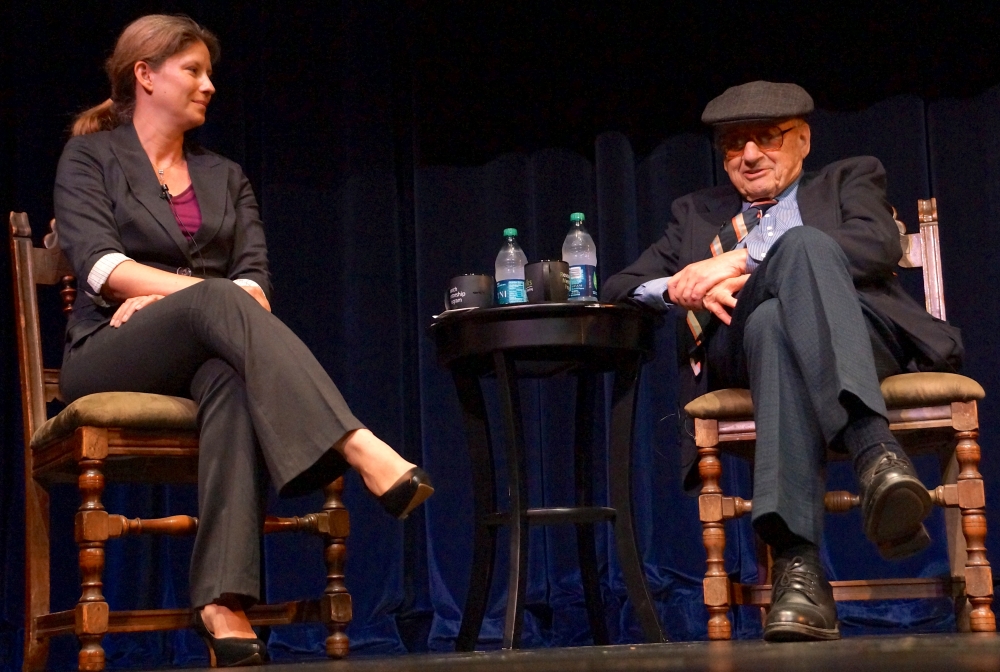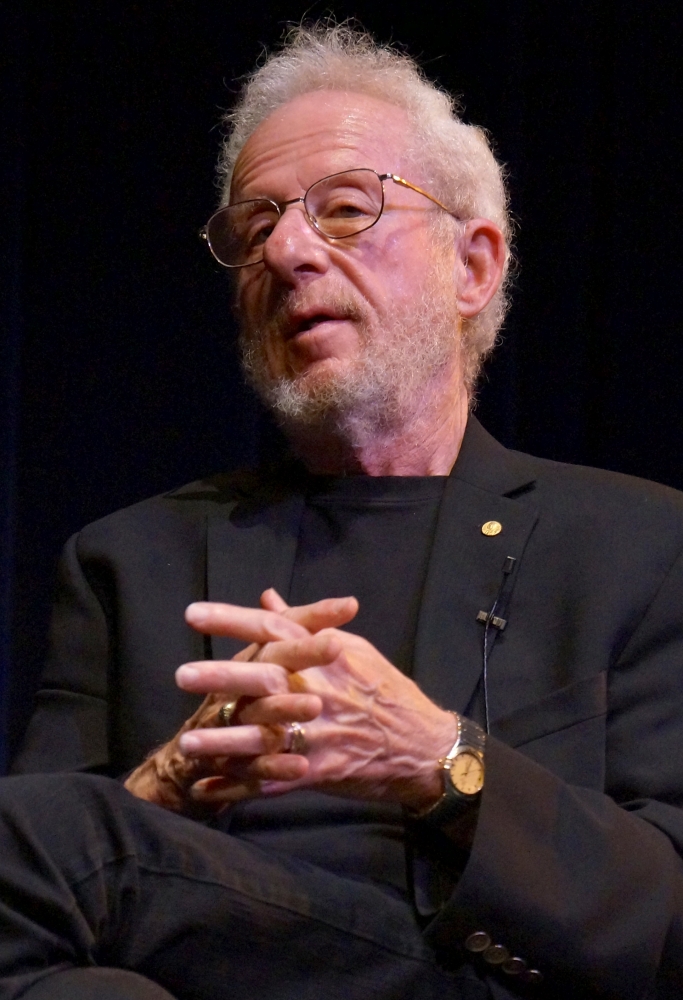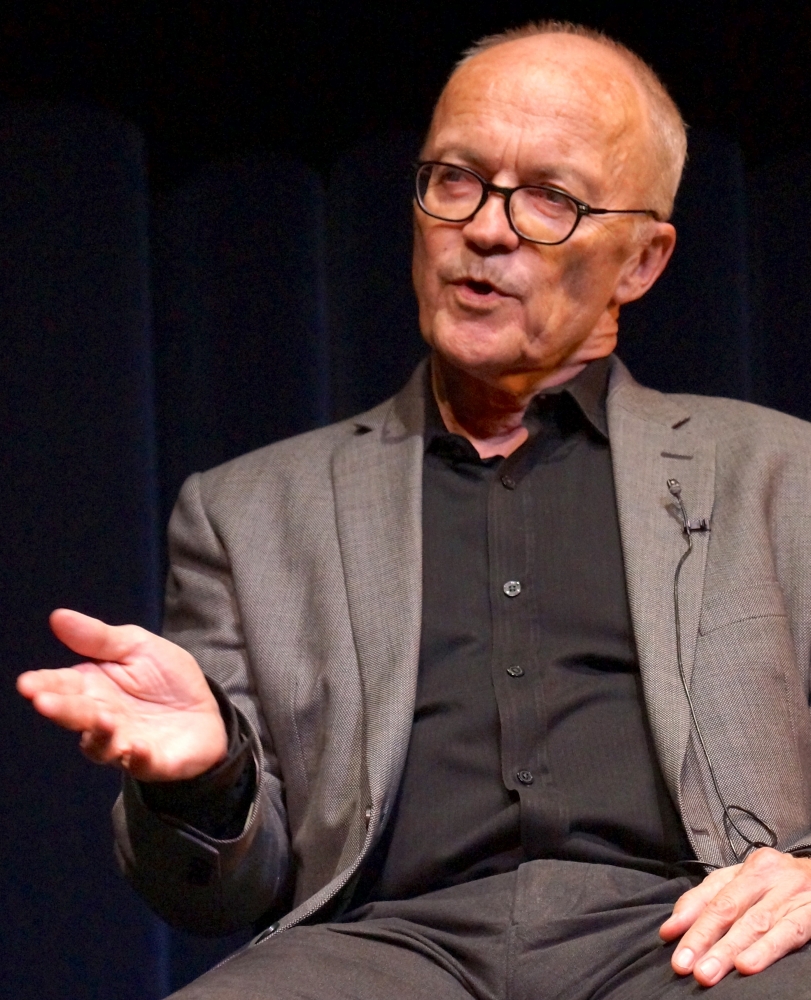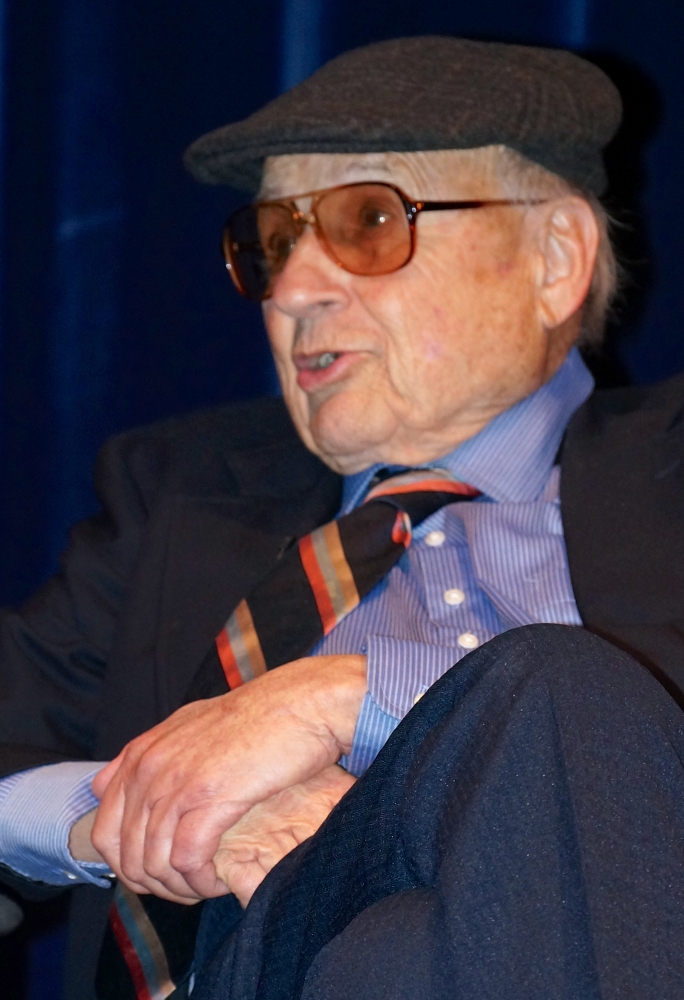
Nobel Laureates Dispense Advice for Future Generations of Researchers



In an instant Monday night, a hush came over Hatlen Theater as UC Santa Barbara's Vice Chancellor for Research, Mike Witherell, joked about how quickly the packed auditorium quieted. Then, moderator Meredith Murr, director of research development, introduced three of UC Santa Barbara's Nobel laureates — Alan Heeger, Finn Kydland, and Walter Kohn — and summarized the works that won each of them the Nobel prize.
Heeger, a professor in the Department of Chemistry and Biochemistry, shared the 2000 Nobel Prize in Chemistry for his role in the revolutionary discovery that plastics can have the properties of metals and semiconductors, a finding that created an important new field of research.
Kydland joined the faculty in July 2004, when he was appointed to the Henley Chair in Economics. That same year he was jointly awarded the Nobel Prize in Economics for research on business cycles and macroeconomic policy, specifically the driving forces behind business cycles and the time inconsistency of economic policy.
A condensed matter theorist, Kohn, emeritus professor of physics and a research professor, won the Nobel Prize in Chemistry in 1998 for his leading role in the development of density functional theory, which has revolutionized scientists' approach to the electronic structure of atoms, molecules, and solid materials in physics, chemistry, and materials science.
In a free, public event of the ongoing GRITtalk series, the three discussed how they came to the work that won them the Nobel prize, and when they realized it was groundbreaking in nature. They talked about their lives pre- and post-Nobel. They talked about risk, rejection and self-doubt. Yes, even Nobel laureates are human.
"It was very interesting to hear how these great people became who they are," said Aidan Herderschee, a participant in UCSB's Research Mentorship Program (RMP), a six-week summer research program for highly motivated high school students.
For an event with serious brainpower in evidence, levity was not absent. The audience laughed throughout the evening at amusing stories about the official Nobel call and other important life moments that the laureates shared.
According to Heeger, risk is part of the thrill of a life in science. "After the Nobel Prize, there was a period of time when I was hesitant to take a risk," he recalled. "It's okay to fall on your face when no one is looking. But I got over it. One should never lose one's nerve."
But the most captivating part of the evening took the form of advice: that which the laureates received and that which they dispensed to the audience. "It's important to start with considerable exploration," said Kohn. "You'll stumble upon something you really love to do," Kydland said.
"It was quite interesting and I appreciate the advice for young people," said Ulrike Wabel, who was visiting Santa Barbara from Germany and saw the GRITtalk in a local paper's calendar section. "I will pass on their advice to my grandson," added fellow traveler Jan Schuleter.
The GRITtalk series is jointly sponsored by the RMP and the Summer Cultural and Enrichment Program. GRIT stands for groundbreaking research/innovative technology. The talks offer an opportunity to spend an evening with notable UCSB scholars, in this case three Nobel laureates.
"It was an honor to have them come and talk to us," said Andrew Milich, an RMP student from New York City. "I've read about the Nobels, but I never thought I'd get to see a Nobel laureate when I was so young."
The panel discussion was followed by a question-and-answer period. When Vijaya Dasari, an RMP student from Memphis, Tennessee, asked the Nobel laureates what the most groundbreaking discovery in their field was, Kohn had a succinct reply. "My field of research can be broad or narrow, but I can sum it up in two words: quantum theory," he said.
"It was really inspiring to hear the Nobel laureates," said Christabel Chan, a Canadian RMP student from Toronto, Ontario. "This is the kind of unique opportunity you don't get in any other summer program and that is why I came here."



